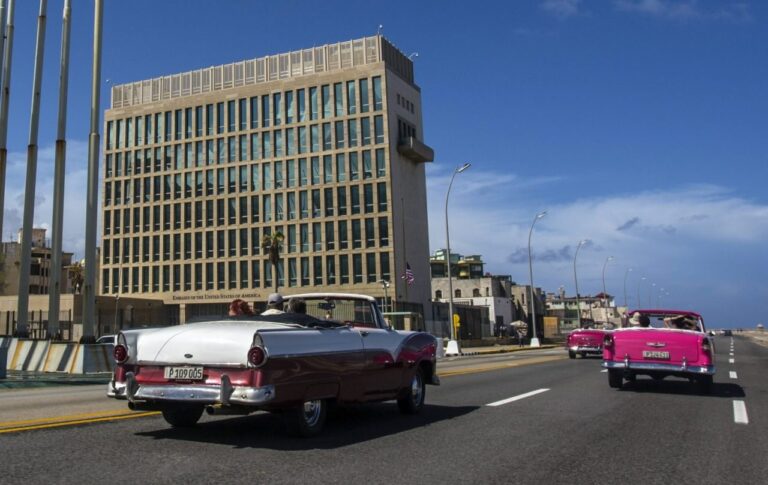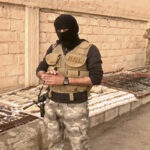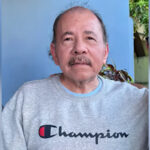A recent interim report by the House Permanent Select Subcommittee on the CIA suggests that a foreign adversary is “increasingly likely” responsible for the mysterious health incidents known as Havana Syndrome, which have affected U.S. military, diplomatic, and intelligence personnel since 2016. The conclusions of the latest report stand in stark contrast to the findings of the previous investigation, which determined that foreign actors were not involved in the so-called Havana Syndrome.
In May 2021, we published the results of our independent analysis based on declassified CIA data regarding similar incidents in Moscow during the Cold War, where U.S. Embassy personnel were targeted. Our report also referenced Soviet research into microwave weaponry, the effects of which align precisely with the symptoms observed in Havana Syndrome cases.

More on this story: Russia targets American diplomats with new directed energy weapon
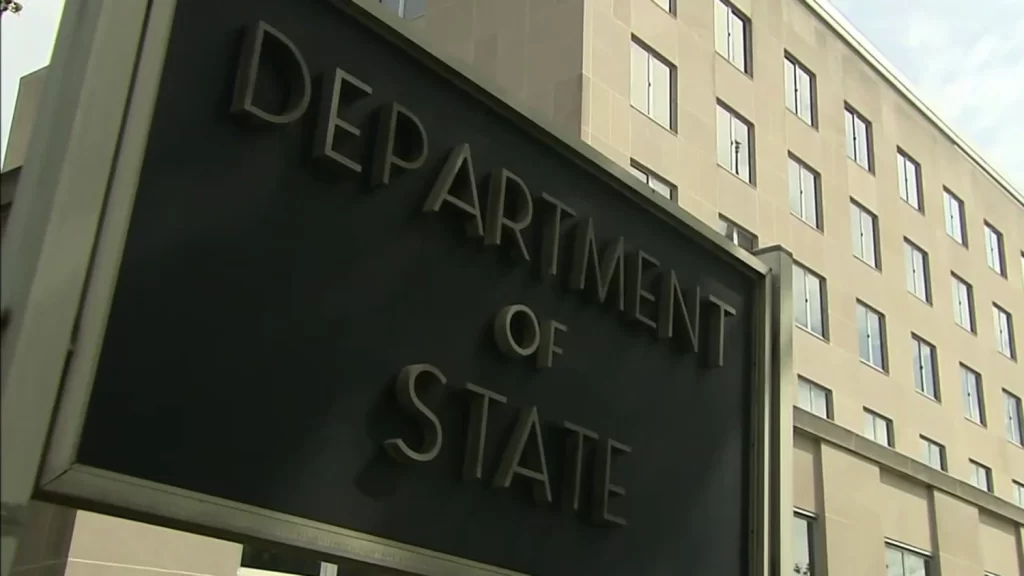
More on this story: Havana Syndrome: a fact of Russia’s hostility against U.S. diplomats
We were both surprised and deeply concerned by the 2023 report’s conclusions, as they failed to consider the extensive body of evidence collected by the CIA prior to 1991—evidence that demonstrated a high degree of reliability, accuracy, and credibility.
This finding challenges a 2023 U.S. Intelligence Community Assessment that had deemed it “very unlikely” that a foreign adversary was behind the incidents.
Thus, The resent subcommittee’s report criticizes the previous assessment for lacking analytic integrity and recommends overhauling the intelligence community’s analytical process, increasing the collection of anecdotes, and improving medical care for those affected.
The previous U.S. intelligence report, which downplayed foreign involvement in Havana Syndrome, was likely shaped by several key factors:
- Lack of Conclusive Evidence:
The intelligence community faced challenges in identifying definitive proof linking the symptoms to a foreign adversary. The incidents occurred across different locations, involving a wide range of individuals, which made it difficult to attribute a single cause. - Natural and Environmental Explanations:
The earlier report considered alternative explanations, such as environmental factors (e.g., ultrasonic interference, microwaves) or pre-existing medical conditions. Some analysts argued that stress, mass psychogenic illness, or localized conditions might explain the symptoms. - Inconsistency of Symptoms:
Havana Syndrome cases exhibited a broad spectrum of symptoms, including dizziness, nausea, headaches, and cognitive issues. The variability made it difficult to determine whether they resulted from a deliberate external attack or unrelated medical causes. - Desire to Avoid Escalation:
Acknowledging foreign involvement—potentially by an adversary like Russia or China—could have escalated geopolitical tensions. The lack of concrete evidence may have led officials to err on the side of caution to avoid public accusations without proof. - Insufficient Data Collection:
Some critics of the earlier assessment argued that the intelligence community failed to gather sufficient data or medical records, leading to an incomplete analysis.
The new findings from the House Subcommittee suggest a reassessment, with concerns that the earlier report lacked analytical rigor and may have prematurely dismissed the possibility of foreign adversary involvement. This highlights the complexity of attributing responsibility in cases where symptoms, technology, and intent remain ambiguous.
The CIA’s denial of Russian involvement in Havana Syndrome, despite historical parallels to incidents during the Cold War, can be attributed to a mix of geopolitical, institutional, and evidentiary considerations:
Accusing Russia of deliberate attacks on U.S. personnel could trigger a serious diplomatic and security crisis, worsening already tense relations between the U.S. and Russia. Such an accusation would require the U.S. to respond forcefully, potentially leading to a new phase of conflict.
Russia’s modern intelligence operations often rely on methods that are difficult to attribute, allowing for plausible deniability. Directed energy weapons, for example, could be tested or deployed covertly, leaving little forensic evidence behind. The lack of clear technical fingerprints may have led the CIA to take a more conservative stance.
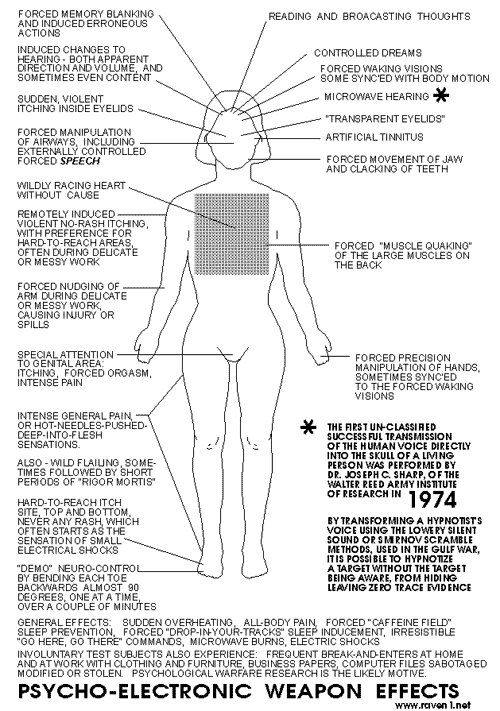
Intelligence agencies often operate with extreme caution when drawing conclusions, especially those with significant political or military implications. In this case, internal divisions or disagreements within the intelligence community might have resulted in the report’s more conservative conclusion.
While the U.S. Embassy in Moscow was subjected to microwave radiation during the Cold War, acknowledging this precedent might raise uncomfortable questions about whether such operations persisted in a modern context. The CIA may have been reluctant to openly connect the dots without irrefutable evidence, fearing political backlash or public panic.
The House Subcommittee’s more recent findings suggest growing skepticism of the CIA’s initial denial, with some lawmakers and analysts arguing that the intelligence community’s assessment lacked transparency and analytic rigor. The failure to publicly address patterns of Russian behavior—historical and current—raises concerns that political caution may have overridden investigative thoroughness.
Ultimately, the denial of Russian involvement reflects the tension between political pragmatism and the pursuit of truth, particularly in cases where attribution remains complex and politically explosive.
However, the use of microwave weaponry within the United States indicates that a foreign actor has smuggled and deployed some form of weapon against American citizens, including in the nation’s capital, near government facilities.The deployment of such weapons against U.S. diplomats, intelligence agents, and military personnel worldwide—and even on the grounds of the White House—undeniably constitutes an act of international terrorism and a direct assault on U.S. institutions.
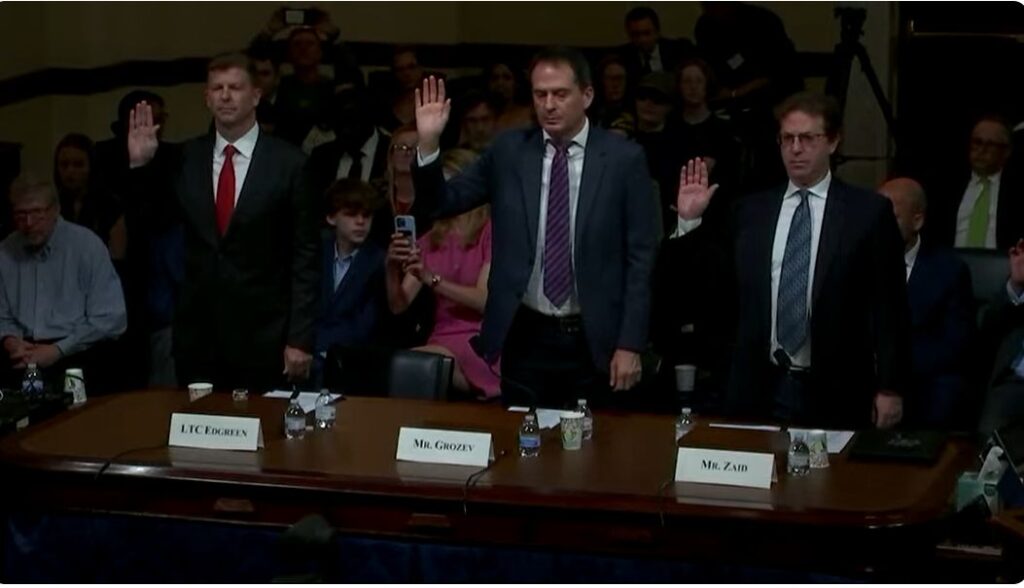
More on this story: Russia behind Havana Syndrome attacks


